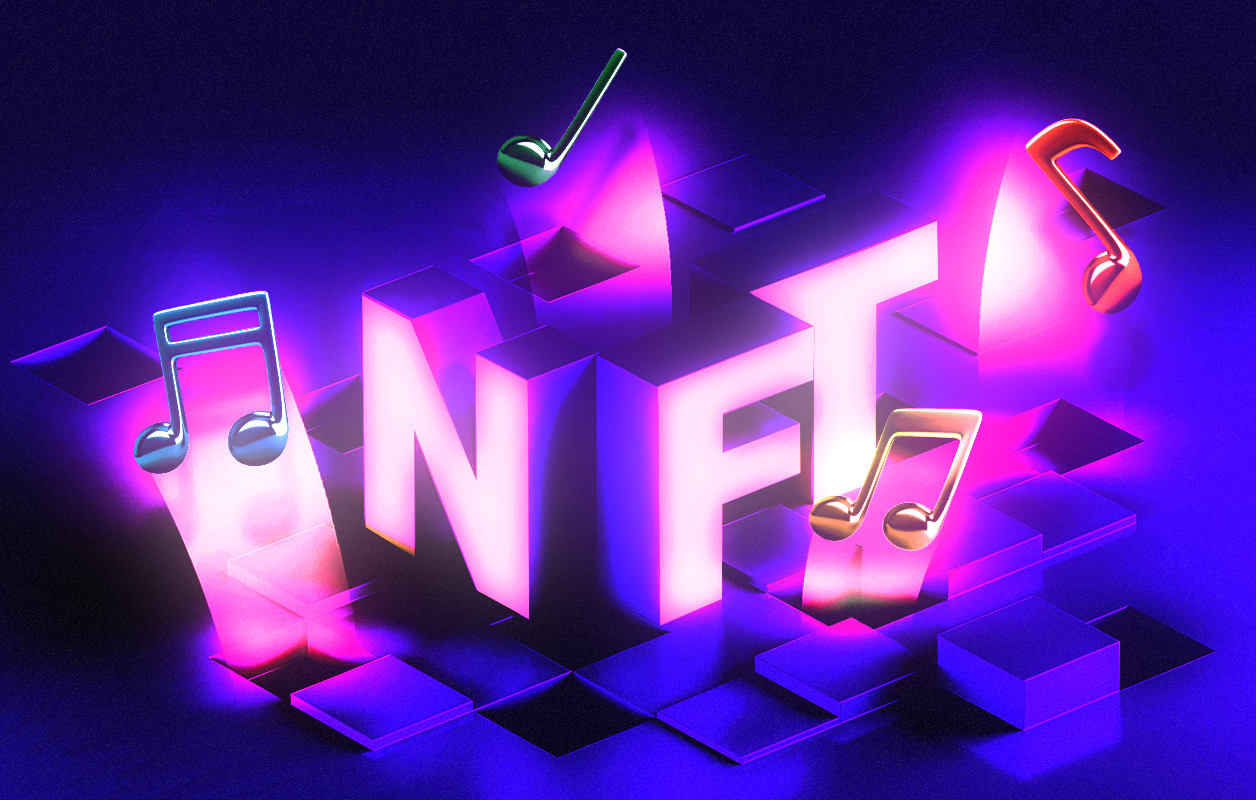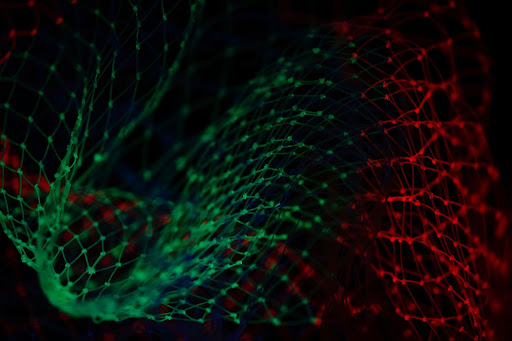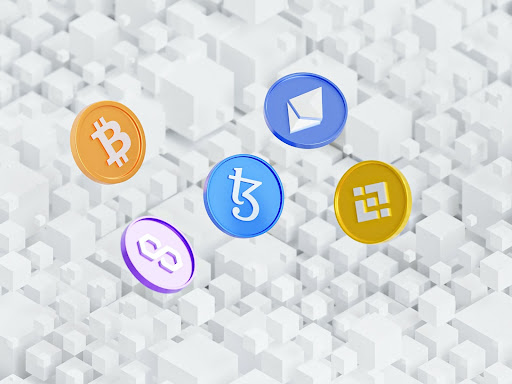
The music industry is rapidly changing as we know it. One small piece of that pie can be attributed to the rise of music NFTs, now backed by A-list artists like The Weeknd and Grimes. Some are more enthusiastic than others about this central shift in culture, though one thing is for sure, NFTs are poised to stay within the music industry.
But what exactly are NFTs? And how will music NFTs continue to shape the future of art as we know it? Below, we’ll break down everything you need to know about music NFTs so that you can be an informed artist.

What Is An NFT?
For simplicity’s sake, an NFT is a digital art piece with a certificate of authenticity. Each NFT or non-fungible token is created or “minted” with unique data hosted on a blockchain like Ethereum or Bitcoin. NFTs hold value based on their cultural context, just as art in the physical world does. A painting might not sell for a lot at the beginning of an artist’s career, but once they become more popular, that same painting might sell for much more. The same concept can be applied to NFTs.
NFTs aren’t just about money, however. These assets can act as new ways to support your favorite artists or find other dedicated fans within a niche community. They allow artists to craft digital goods for their fanbase and elevate their brand. NFTs can be essentially anything! Any digital asset can serve as one, but here are a couple of examples of NFT possibilities for musicians:
-An exclusive remix
-Demo versions of tracks
-Unused cover art
-Artist icons or avatars
-Music visualizers
-Singles, EPs, or albums
-A portion of master recordings or royalties
Why Are NFTs Pivotal For Musicians?
So why are so many artists finding ways to mint their own songs and art? Here are some of the main reasons why NFTs could have several benefits for musicians and their fanbases.
Direct Monetization
Perhaps the greatest benefit of NFTs for musicians is the direct model of monetization. Artists are able to profit directly from their works without having to rely on any middlemen.
New Fan Experiences
NFTs provide musicians with a clear view of some of their most dedicated fans. Artists can leverage these communities to strengthen their connection with fans and reward NFT holders with additional exclusive experiences like joining a private Discord or enjoying early access to tour tickets.
NFTs Aren’t A Huge Lift For Artists
NFTs can be basically anything that is unique and holds value on the blockchain. Musicians already have to invest a lot of time and energy into creating assets surrounding their art, but NFTs don’t add fuel to the fire. Instead, musicians can repurpose past or unofficial assets to service their fanbase interested in NFTs. Many musicians will still opt to create a completely novel NFT experience for their fans, but this isn’t an absolute necessity to get involved.
Access To Engaged Online Communities
Music NFTs have brought in buyers from niche communities within the gaming and crypto space, which may be difficult to reach otherwise. NFTs and customized artist tokens help market music to new ears.
A New Model of Investment
When used correctly, NFTs could be used to reward fans in the long run. For instance, if a fan buys an artist’s NFT before the artist’s breakout to the mainstream, the resale value post-breakout can provide a return on investment. There are also minting models where every time the NFT is bought and sold, the original artist makes a percentage of the sale. NFTs aren’t just direct monetization for artists since they can be passive long-term monetization, too.

How Do Musicians Create NFTs?
Are you ready to mint your own NFTs? Before diving headfirst into minting your own music, make sure you have a clear view of what’s involved. Here’s a basic overview of the process of making NFTs as a musician:
1. The Fanbase Comes First
It’s important to remember that NFTs are not a one-size-fits-all solution. While NFTs will help indie or smaller artists monetize their art on a much smaller scale, musicians still have to put in a lot of leg work in building their community.
Essentially, NFTs thrive on their perceived value, just like any physical art piece. If you haven’t cultivated a fanbase that would be willing to invest in your works, NFTs shouldn’t be the next step in your journey.
2. Pick Your Assets And Find A Marketplace
Once you’ve built up a dedicated community, it’s time to find a marketplace for your NFTs. Find a blockchain that aligns with your values, whether that’s hosting smaller, indie artists or acting as a climate-neutral minting space.
From there, you’ll have to create assets to turn into NFTs. Try to think about anything your fans need to know about this particular edition. Is your NFT redeemable for any IRL perks? Do NFT holders get access to an exclusive newsletter or sub-community within your fanbase? Creating more incentives around your NFT drops can help draw in hesitant listeners.
3. Mint Your Creation
Once you find the right NFT marketplace for your needs, you can proceed to minting and selling your NFTs. Treat your NFT launch as a single or project release. You’ll need to market it to bring fans and buyers to your NFT marketplace.
4. Cultivate A Community
It’s totally acceptable to mint NFTs, sell them, and stop the experience there. However, many artists have put in the effort to expand a subset of their fan communities based on NFT holders to continue the conversation past an NFT purchase. Consider reaching out to participating fans, creating an exclusive online space, or providing special access for your top NFT supporters.
While NFTs do have their downsides, they are actively transforming the way we consume and value art. Music NFTs aren’t going away anytime soon. We hope this article puts you one step ahead of the game!

